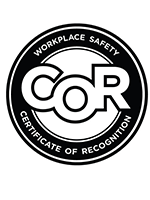Posted: Aug 1 '24

In the high-risk environment of petrochemical plants, safety is paramount. The presence of onsite fire and rescue teams plays a crucial role in maintaining the safety and security of these facilities. These teams are integral to both prevention and emergency response, ensuring that the operations run smoothly, and hazards are managed efficiently. Get in touch with us today to learn more about our onsite safety services.
Onsite fire and rescue teams are not only about responding to emergencies but are also deeply involved in preventive measures. Their expertise in fire safety protocols and hazard identification is invaluable in a petrochemical setting.
One of the key roles of onsite fire and rescue teams is conducting regular safety audits and inspections. These inspections help identify potential fire hazards and other safety issues before they can escalate into major problems. By staying vigilant and proactive, these teams can address vulnerabilities early and implement corrective measures.

Training plant employees on fire safety and emergency procedures is another critical function of onsite fire and rescue teams. Regular drills ensure that everyone knows their roles and responsibilities during an emergency. This training helps create a safety-conscious culture within the plant, where employees are well-prepared to handle potential fire incidents.
Onsite fire and rescue teams are responsible for the maintenance and testing of fire safety equipment. This includes fire extinguishers, sprinkler systems, and fire alarms. Ensuring that all equipment is in working order is vital for quick and effective response in case of an emergency. Regular checks and maintenance schedules are essential to prevent equipment failure when it is needed the most.
Despite the best preventive measures, emergencies can still occur. Onsite fire and rescue teams are trained to respond swiftly and efficiently to any incidents, minimizing damage and ensuring the safety of personnel.

In the event of a fire or chemical spill, the presence of an onsite fire and rescue team allows for immediate response. These teams are equipped with the necessary tools and protective gear to tackle fires and manage hazardous materials safely. Their quick action can prevent a small incident from escalating into a major disaster.
Onsite fire and rescue teams often work in coordination with local fire departments and emergency services. This collaboration ensures that there is a seamless and effective response to large-scale emergencies. Onsite teams can provide valuable information and support to external responders, enhancing overall safety efforts.

After an emergency is handled, onsite fire and rescue teams conduct a thorough analysis of the incident. This analysis helps in understanding the causes and effectiveness of the response measures. Detailed reports and recommendations are made to improve future safety protocols and prevent similar incidents.
Effective onsite fire and rescue teams share several key components that make them indispensable to petrochemical safety.

The essential role of onsite fire and rescue teams in petrochemical plants cannot be overstated. Their involvement in prevention, training, equipment maintenance, and emergency response ensures that these high-risk environments remain safe and secure. By continuously improving safety protocols and staying prepared for any incidents, these teams help maintain operational stability and protect lives. To learn more about how MI Safety can help your workplace with an onsite first and rescue team, call us today for a consultation.
REQUEST INFO ON OUR COURSES





